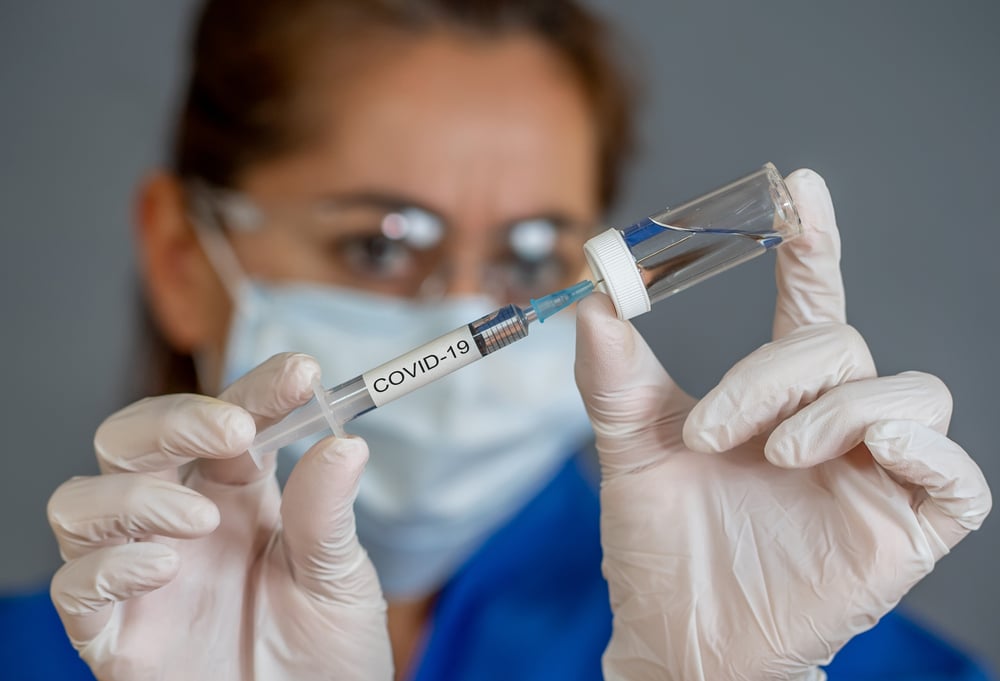Eli Lilly Begins COVID-19 Drug Trial in U.S. Nursing Homes

United States-based drugmaker Eli Lilly is beginning a late-stage drug trial to determine if their experimental COVID-19 antibody treatment could prevent the virus from spreading in nursing homes. The drugmaker is launching the trial in partnership with the U.S. National Institute of Allergy and Infectious Diseases (NIAID) and several long-term care facility networks in the U.S.
With more than 40% of COVID-19-related deaths occurring in nursing homes, drugmakers are racing to find ways to prevent outbreaks or treat the disease.
Chief scientific officer at Eli Lilly, Daniel Skovronsky, says,
“Covid-19 has had a devastating impact on nursing home residents. We’re working as fast as we can to create medicines that might stop the spread of the virus to these vulnerable individuals.”
Drug Trial Information
The drug trial is a phase 3 trial that will test LY-CoV555. LY-CoV555 is an antibody treatment that Eli Lilly developed in partnership with Canadian biotech AbCellera. The drug is part of a class of drugs called monoclonal antibodies. This class of drugs is one of the most widely used medicines in biotechnology.
Antibodies may be an effective way to protect nursing home residents and staff from contracting and spreading the coronavirus. By administering antibodies to people who are at risk, those people may have at least temporary protection from the pathogen.
The trial in nursing homes will study whether the antibody treatment works prophylactically. Current studies in hospitals are testing whether the drug can treat people who already have the disease.
The drugmaker hopes to enroll around 2,400 people who live or work at a nursing home. The study will focus on facilities that have recently diagnosed a positive COVID-19 case. The study will assess the effectiveness of a single dose on complications and the rate of infection for four and eight weeks.
Drugmaker Helps Nursing Homes Lacking Infrastructure
Nursing homes often forego clinical trials due to their lacking resources, expertise and infrastructure. To address this problem, Eli Lilly is sending mobile research units to facilities so that research can take place without upsetting the normal routine inside the facilities.
The mobile research units can deploy quickly to nursing homes experiencing outbreaks. The research units include recreational vehicles that are retrofitted for research purposes. Lilly will also deploy trailer trucks outfitted with equipment and supplies that on-site clinics will need.
By taking these steps, Eli Lilly is positioning itself in a niche of anti-SARS-CoV-2 antibody research. Also, their focus on a population that desperately needs protection sets them apart from the many other drugmakers testing vaccines and/or treatments.
Drugmaker Offers Hope to Nursing Homes, Staff and Families
Lilly hopes to have 100,000 doses available by the end of the year. If LY-CoV555 is effective, the drugmaker also hopes to have around one million doses available by the end of 2021. Skovronsky says,
“If it works, that’s not enough. Doses will have to be prioritized to patients that need it the most.”
The company recognizes that nursing homes continue to struggle amid COVID-19 outbreaks. They hope to have data within a few weeks of enrollment closing. Lilly also recognizes that data from this study may not be enough to get emergency use authorization, noting they may have to show regulators that the drug can reduce hospitalizations.
This new study and a focus on nursing homes is offering some hope to staff, residents and family members. As COVID-19 continues to claim lives across the U.S., hope is a powerful tool in the fight to protect the most vulnerable among us.
Sources:
- https://www.usnews.com/news/top-news/articles/2020-08-03/eli-lilly-starts-late-stage-study-of-covid-19-drug-in-nursing-homes
- https://www.fiercebiotech.com/biotech/lilly-starts-phase-3-test-covid-19-antibody-nursing-homes
- https://www.cnbc.com/2020/08/03/eli-lilly-starts-late-stage-study-of-coronavirus-drug-in-nursing-homes.html


